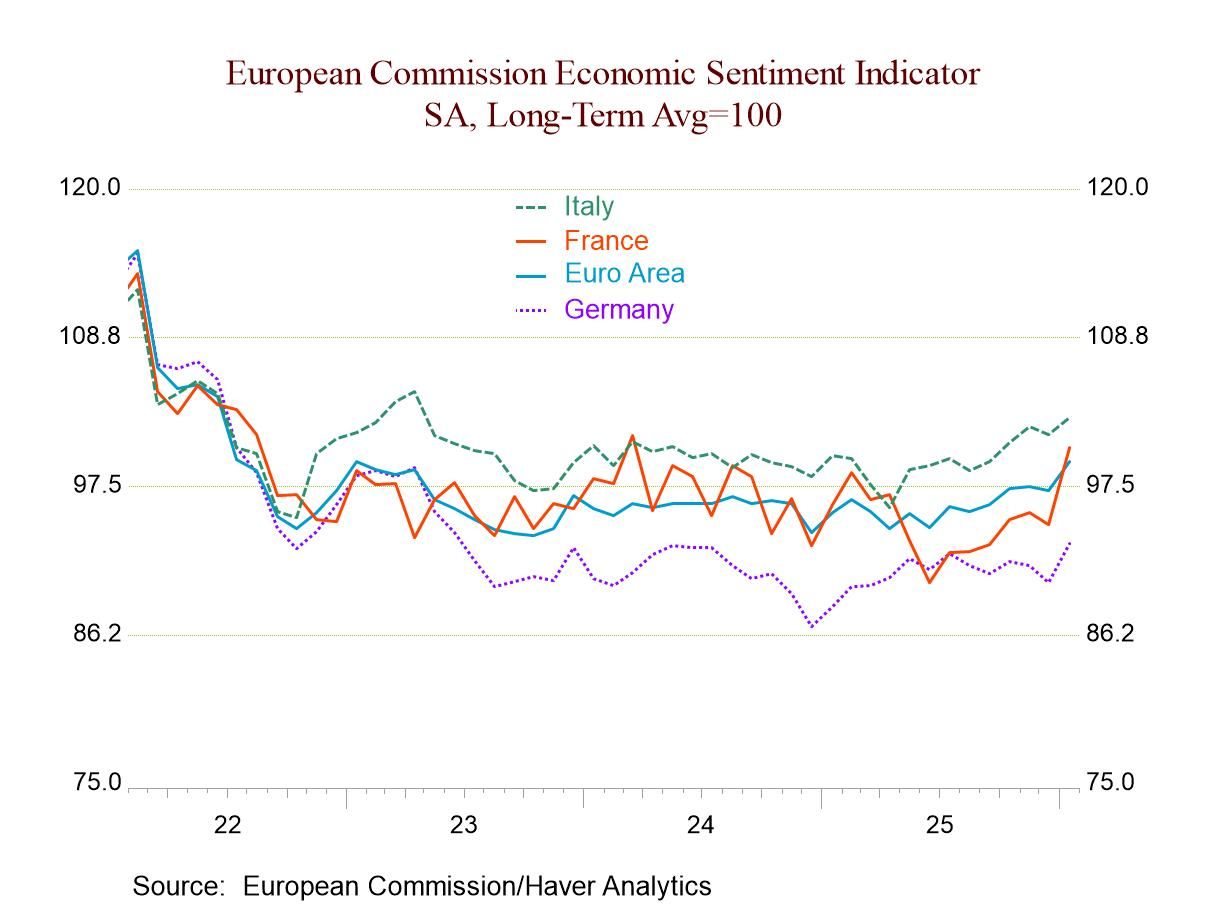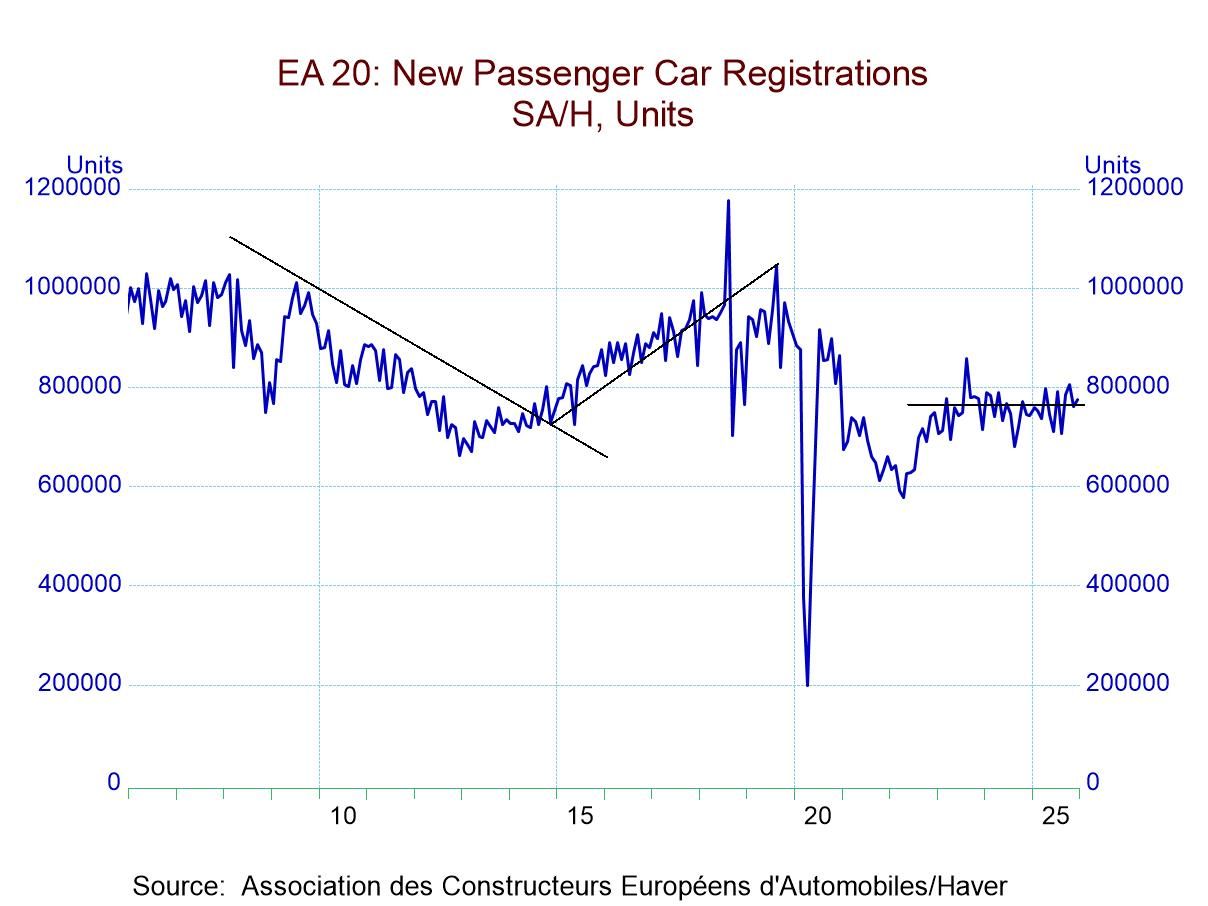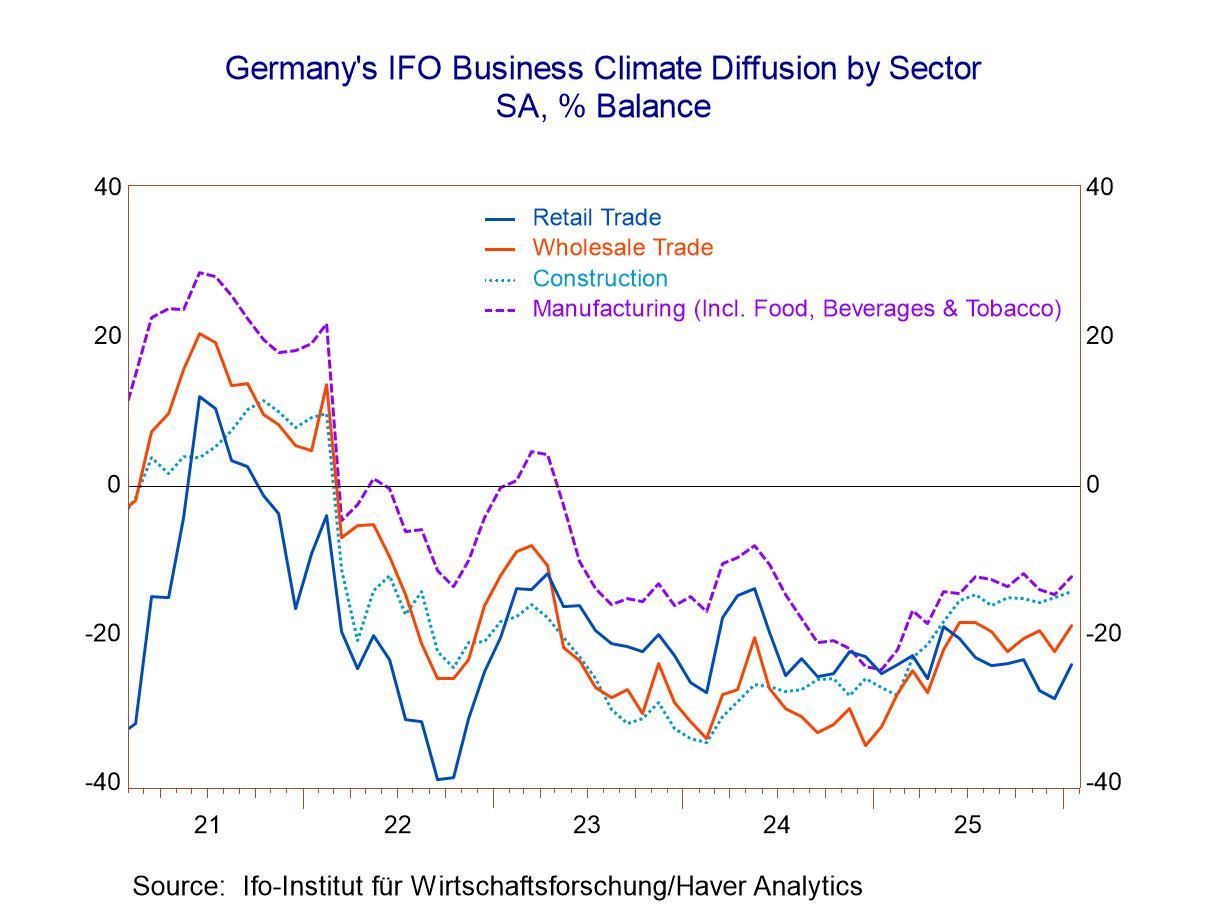Italian industrial production fell nearly across the board. In December, headline production fell by 0.2%; consumer goods output fell by 0.9% and intermediate goods output fell by 0.4%, while capital goods output was the exception, rising by 0.5%. Output had risen in all sectors in November; it had fallen across all sectors in October. As a result, the recent data are quite choppy and it's hard to make sense of what the underlying trend is or what might be developing.
Sequential data offer some opinions on this idea of where the trend is going. The headline output shows a 3.6% gain over 12 months, advances at a 1.1% annual rate over six months, and then declines at a 1.3% annualized rate over three months. The headline rate is clearly in a persistently declining phase. That phase is supported by intermediate goods where output is up 3.4% over 12 months, rises at a 0.7% annual rate over six months, and then falls at a 2.2% annualized pace over three months. Consumer goods and capital goods do not offer much clarity, swinging sequentially and failing to provide steppingstones to a new trend. Consumer goods output shows a 12-month gain of 0.3%, but that is substantially undermined by a 6.1% annualized decline over three months. However, for capital goods, a 7.2% growth rate over 12 months is quite similar to a 7% annualized gain over three months, showing that capital goods output has hardly lost a step despite a stumble over six months.
Output in the transportation sector in Italy is contrarily showing a tendency to acceleration in monthly data from October to November to December. Sequentially, this series is giving us no clear signals.
Other trends In the quarter to date, Italian output is falling by a 0.8% annual rate, led by a 4.3% annual rate decline in consumer goods. However, capital goods output is increasing at a 3.4% annual rate, and intermediate goods output is up at a tepid 1.6% annualized pace. Since January 2021, the cumulative change in output is lower for manufacturing overall, for consumer goods output, and for intermediate goods, while capital goods output is up by 1.6% over that span. The ranking of year-over-year growth rates on data back to 2004 shows all the sectors with growth rates above the 50% mark, indicating that year-over-year growth across the Italian sectors is greater than their median over this broad period. Headline growth is exceptionally solid, with the ranking in its 81st percentile. The transportation sector, however, has a growth rate that ranks only at its 24th percentile.
Indicators and surveys The bottom panel of the table presents performance by surveys; these tend to be more up-to-date, and they've come to be relied upon. Here we feature indicators from the EU industrial survey and from Istat on current orders and on the outlook for current production. In December, all three of these metrics showed declines; in November they all showed increases, and they showed increases in October similar to the increases logged in November. The changes in the levels of the variables over different horizons show a mild tendency toward weakening, but nothing that is clear or dramatic, looking at changes from 3-months. to 6-months, to 12-months. In the just-completed quarter (QTD), the change in the indicators is either flat or lower. All of them track below their historic median levels (rankings <50). The indicators clearly are showing weaker conditions than actual production data. These sorts of rifts are common between accounting data and survey-style diffusion data. They also generate controversy about which is right. I favor the accounting data.



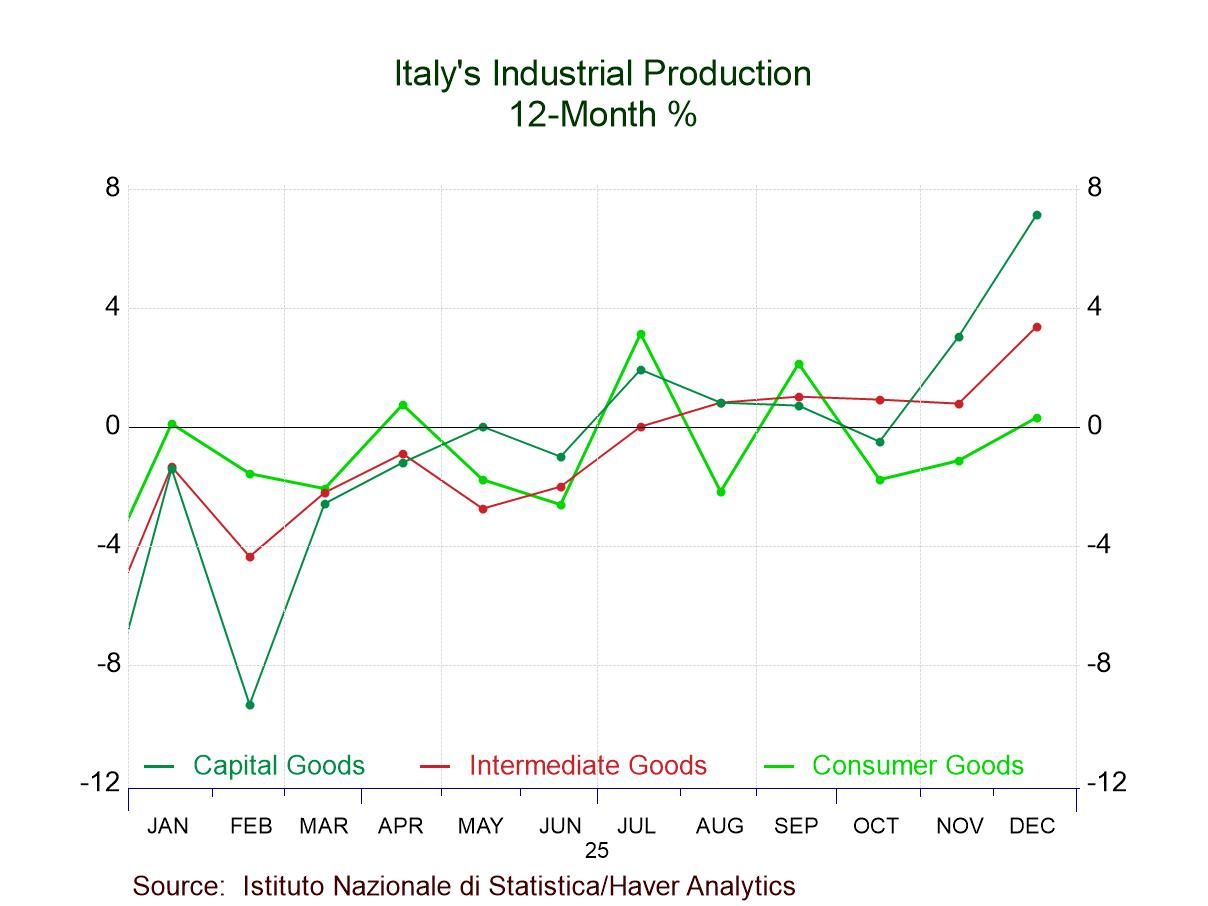
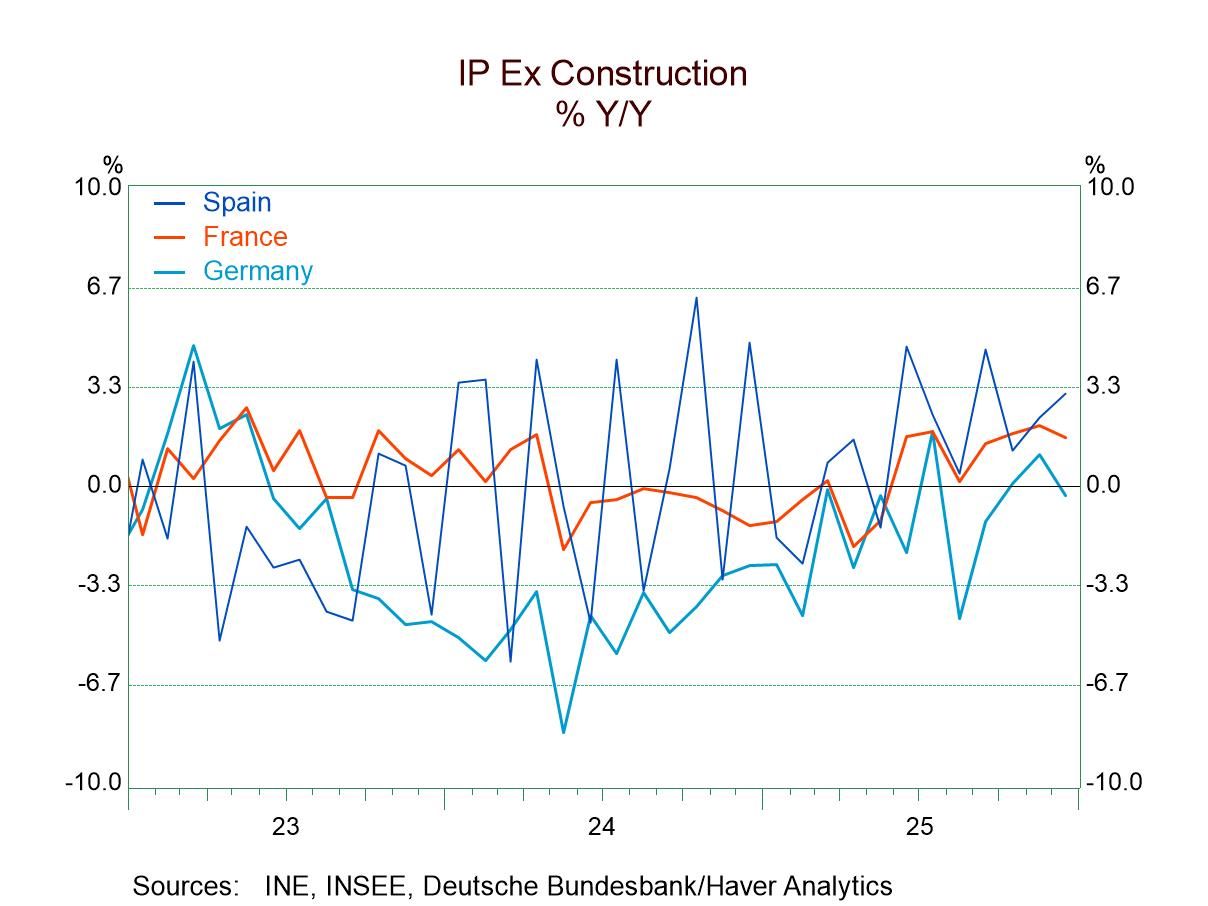
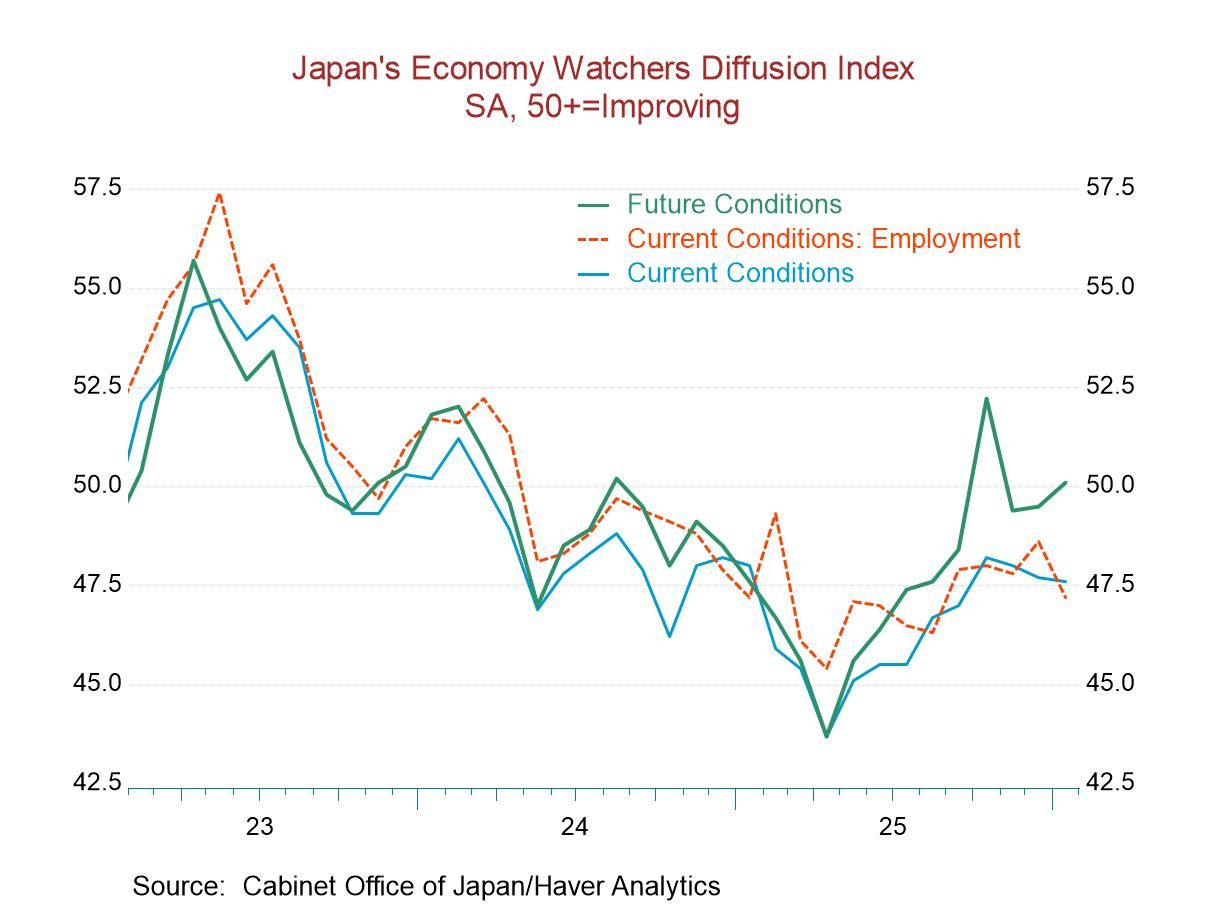



 Global
Global


